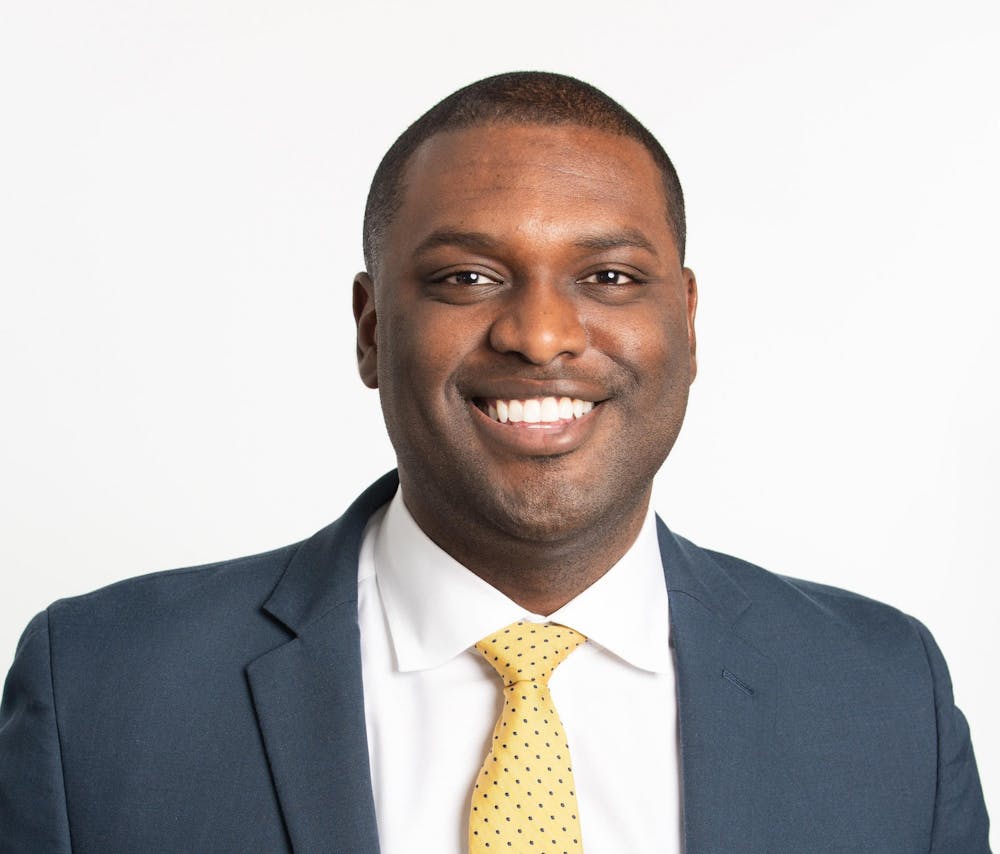The first time I heard the phrase “First Gentlemen,” I was watching Pete Buttigieg’s campaign announcement in April 2019. As I sat on the velvet, green couch in my parents’ living room, I witnessed the first openly gay Democratic presidential candidate proudly kiss his husband on stage. A newfound sense of reassurance embraced me, a sense of reassurance that was unknown to me in my small Indiana town. When the announcement ended, tears filled my eyes.
As a gay male, I had finally felt seen.
The heteronormative and genderphobic government of the United States does not represent my identity, and it certainly does not represent the myriad identities of the LGBTQ+ community. There has only ever been a male President and First Lady. The Trump administration continuously pushed anti-LGBTQ+ legislation throughout its four years in power. With the election of LGBTQ+ candidates in the 2020 election, the “rainbow wave” assures my place, along with every other LGBTQ+ individual, in politics.
In the U.S., the percentage of LGBTQ+ elected officials in government is not representative of the population of the community. Before the 2020 election, LGBTQ+ individuals comprised only 0.17% of elected government officials, while their percentage in the general population is around 5%. This may seem like a low percentage of elected government officials, but as of July 2020, this was a 21% increase from the 2019 election cycle.
The first rainbow wave took place in 2018 and represented a shift in LGBTQ+ advocacy. The gay liberation movement of the 1970s, largely a radical movement, found value in rethinking the structure of democracy and establishing community, not voting and elections. The mission to achieve gay equality is now reliant upon the vote, which necessitates LGBTQ+ people in elected positions.
The 2018 midterm election saw more than 600 openly LGBTQ+ people run for an elected position, with nearly 400 making it on the ballot and 164 announcing victory in November. This was the first time in history Congress saw a double-digit number of LGBTQ+ congresspeople.
Continuing in 2019, 99 of the 200 LGBTQ+ candidates won their races. An unprecedented four Indianapolis City Council members, Zach Adamson, Ali Brown, Keith Potts and Ethan Evans, were among the winners of the 2019 rainbow wave.
This year, the latest election continued the cycle of LGBTQ+ victories.
The 2020 rainbow wave saw Delaware’s Sarah McBride, a transgender woman, become the first openly trans individual ever elected as a state senator in U.S. history. Shevrin Jones, a gay man, become the first out LGBTQ+ person to be elected to Florida’s upper chamber, and Mauree Tuner became the first nonbinary state legislator after winning a seat in Oklahoma’s House of Representatives.
Aside from state elections, Congressmen-elect Ritchie Torres and Mondaire Jones made history by becoming the first two openly gay Black men elected to the U.S. House of Representatives. Torres will serve New York’s 15th Congressional District, and Jones was elected in New York’s 17th Congressional District.
Of the 570 LGBTQ+ candidates on the ballot, 160 secured a spot in an elected position.
Out LGBTQ+ elected officials can create vital changes through their legislation and advocacy. According to a 2013 University of North Carolina study, the notion that the LGBTQ+ community is not a vital interest group in politics creates an atmosphere of fear and rejection to their associated identity. With the increase in LGBTQ+ representation, we can hope for the dismantlement of heteronormative and genderphobic roles in government, creating a more inclusive atmosphere for generations to come.
As the 2020 election continued to loom over the American people, searching for tangible, positive results helped me calm the seemingly everlasting sense of unknowingness. I witnessed the numerous victories of LGBTQ+ candidates in various elected positions and was again overcome with reassurance, embraced by LGBTQ+ visibility.
Mayor Pete’s 2019 announcement was the first time I witnessed someone like me have a voice in politics. Today — as this number continues to grow — I know the value of my voice in politics. I see the power of my community.
The infinite repetition of the ocean tide proves the inevitability of rainbow waves year after year. Queer people belong in politics, and we are here to stay.
Russ Hensley (he/him) is a sophomore studying mathematics, political science and international law. He is a curator for TEDxIndianaUniversity, a member of IU Student Government and a member of the Hutton Honors College.






